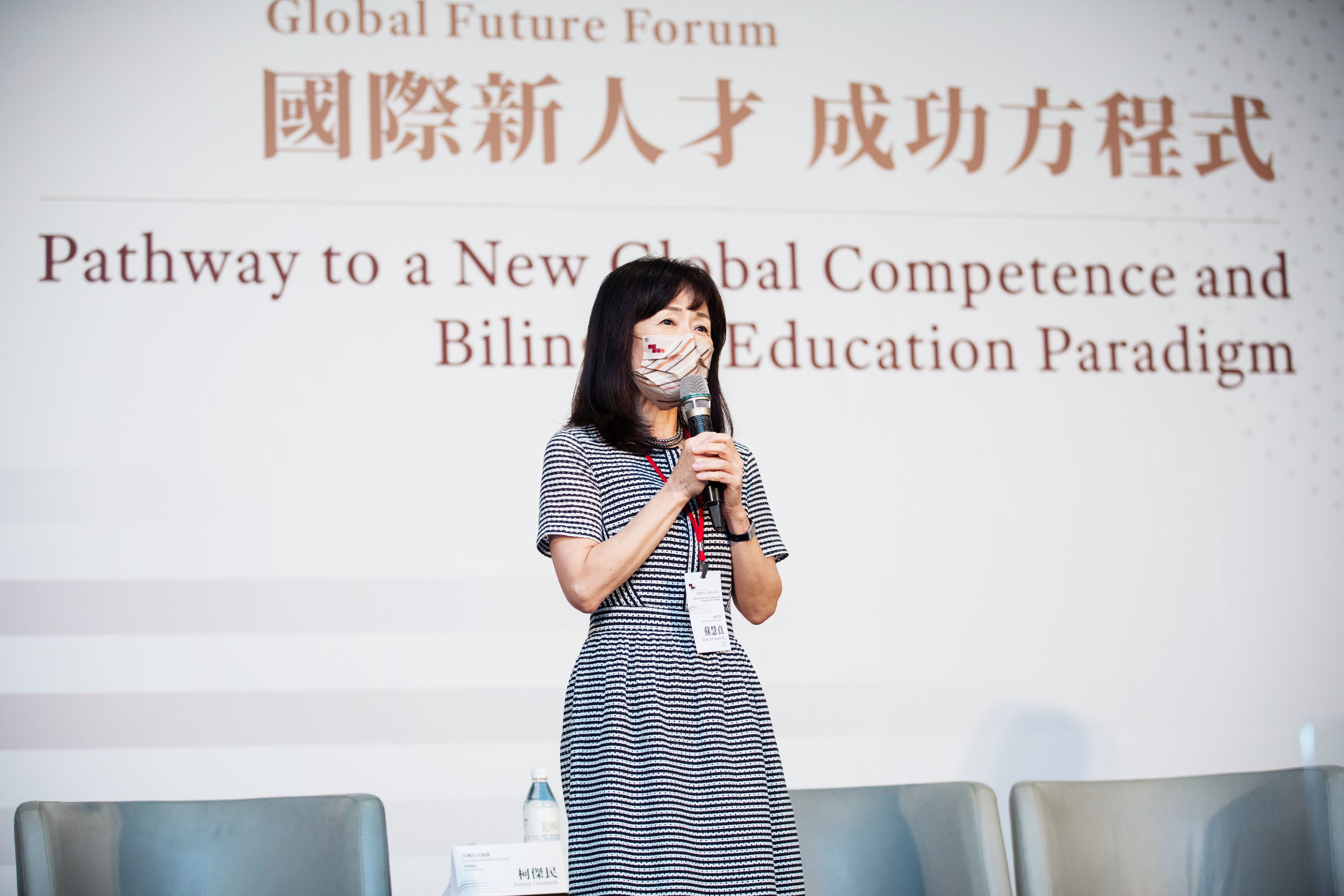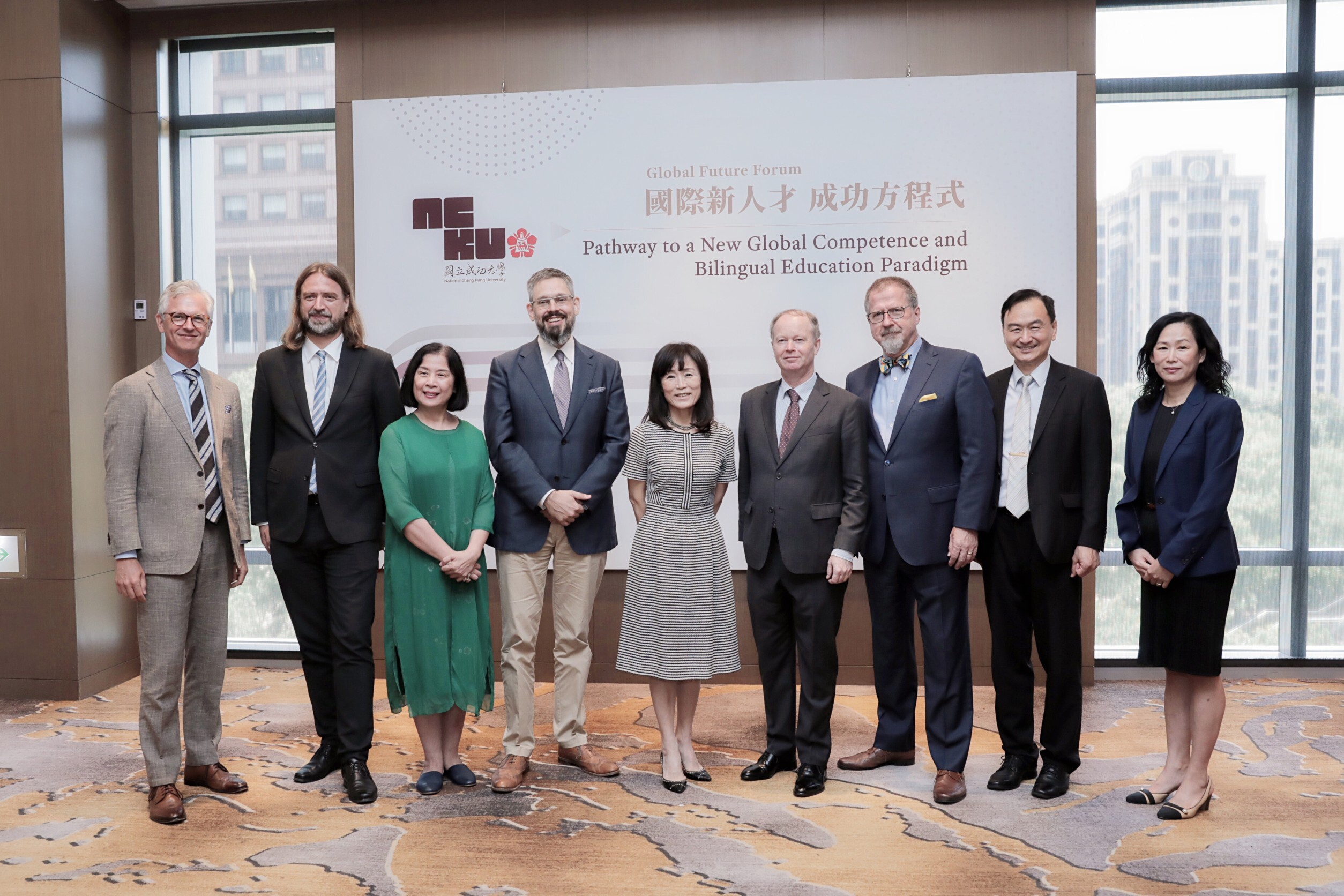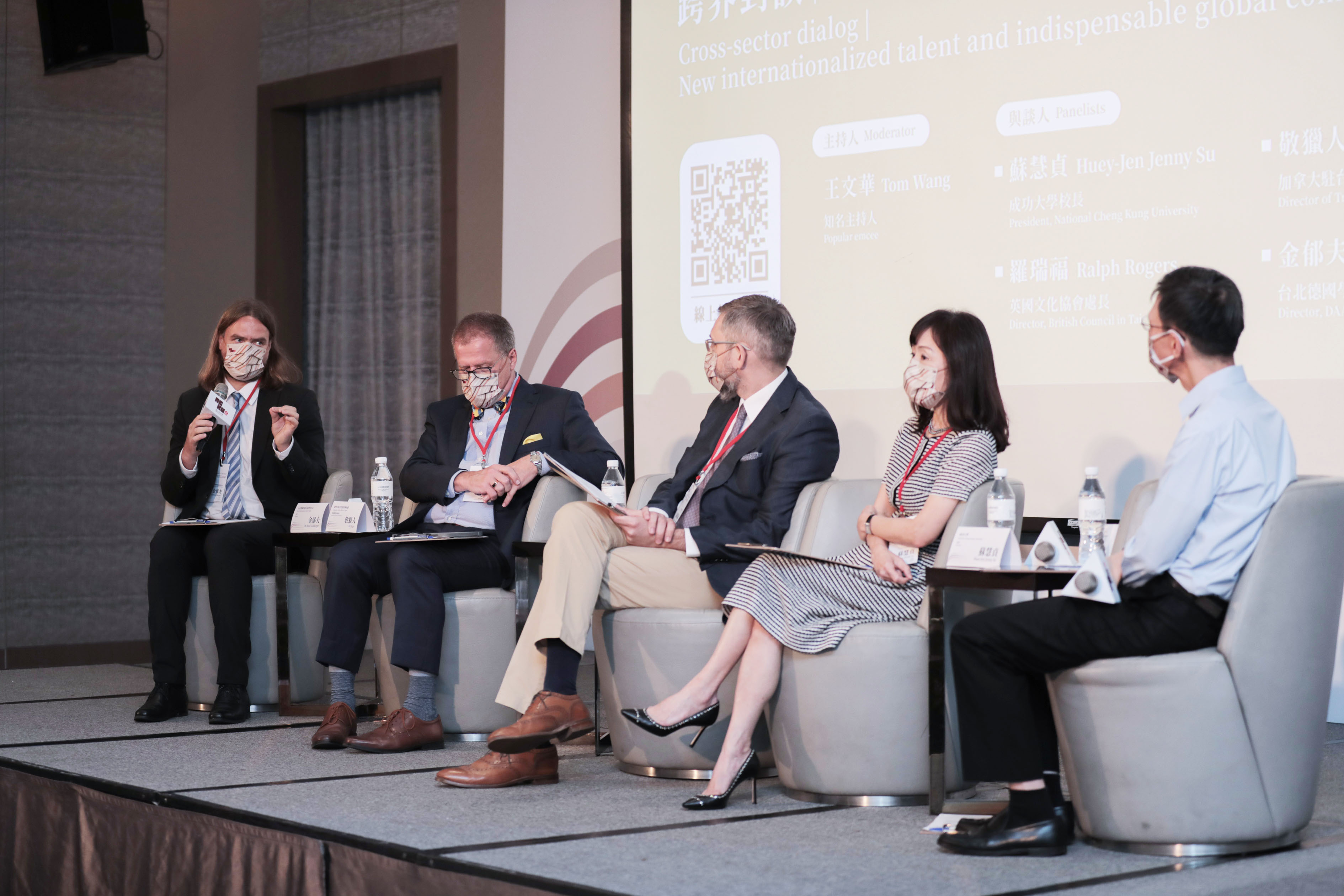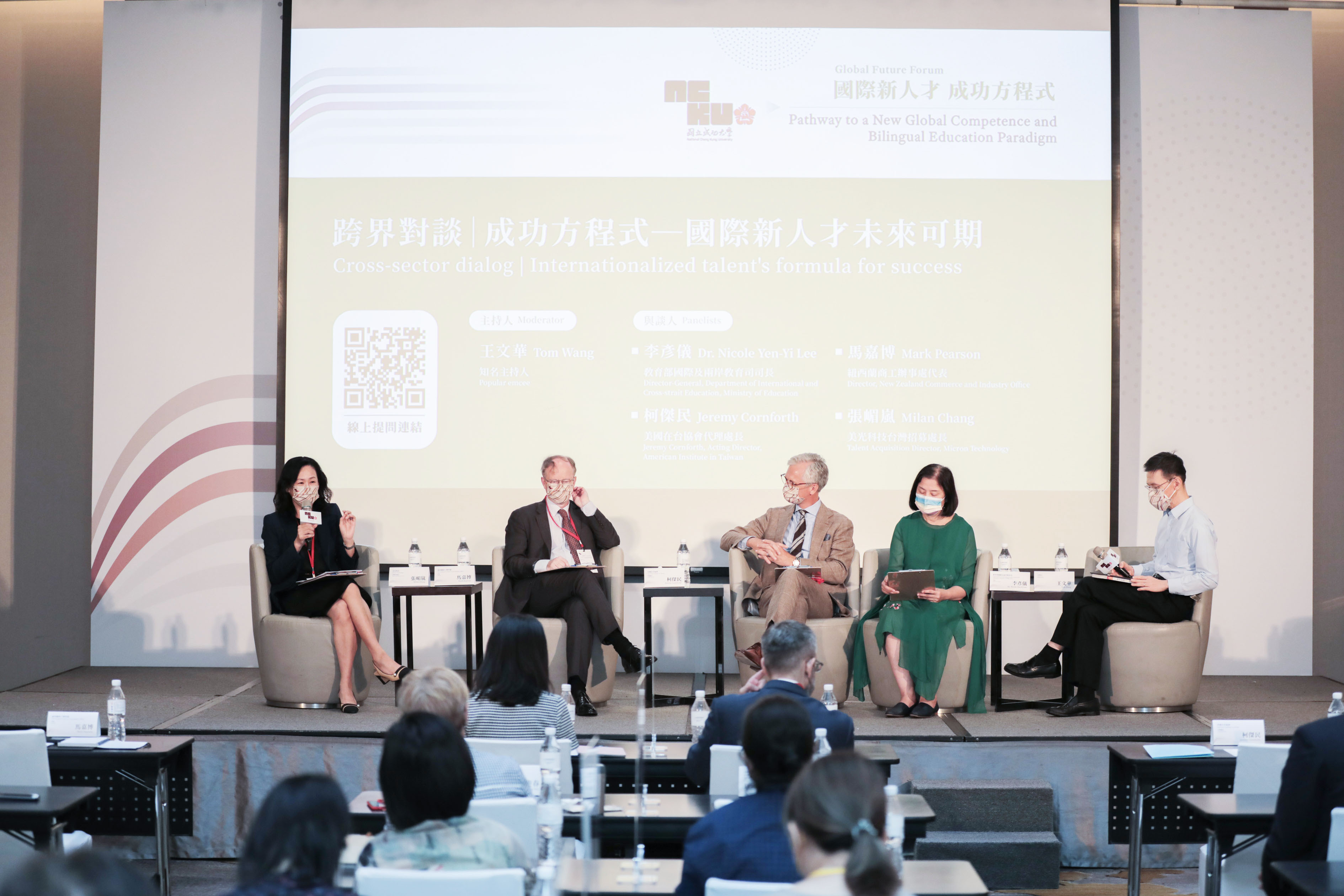Talent Cultivation for the Future World - NCKU as the first university to create agenda for talent cultivation in Taiwan
Written by Sarah Wu. Image credit to News Center.
“It is our manifesto for cultivating the next generation of world citizens and develop their global competency through working in partnership with society,” stated Huey-Jen Jenny Su, President of NCKU, at the Global Future Forum Pathway to a new Global Competence and Bilingual Education Paradigm” on June 28th, Taipei.

Huey-Jen Jenny Su, President of NCKU, at the Global Future Forum
The “Memorandum for the Next Generation: NCKU on Talent Cultivation for Future World” (給下一世代的人才備忘錄) is published in November 2021 and outlines seven global competencies as the Imagination as the ability to anticipate the future, the agility to keeping up with a changing world, a critical mindset to define the problem, the wisdom gathering with self-learning ability, the curiosity to explore the unknown and the extraordinary, the vision to inclusion and global culture and, finally, the achievement of mutual prosperity.”
“NCKU has deployed a successful global talent development strategy and its cooperation with semiconductor industry has been a landmark,” commented Mon Chi Lio, Political Deputy Minister of Education. “Internationalization will profoundly change the higher education in the next decade and the university should do their best to prepare the students and enhance their global mobility for the highly competitive global market, as well as create an international campus recruit more international students, to compensate the declining young population in this aging society” Mon Chi Lio also stress on the various policies to promote of the academia-industry collaboration for future talent cultivation and the driving force for the higher education in Taiwan.

The Global Future Forum “Pathway to a new Global Competence and Bilingual Education Paradigm” held on June 28th in Taipei
“NCKU is the first university to launch the semi-conductor college in Taiwan, as a successful Academia-Industry collaboration,” noted Dr. Yen Yi Lee, Director-General of the Department of International and Cross-strait Education at the Ministry of Education. Dealing with challenges from globalization to flipped classroom, the higher education institutions would be benefited from the bilingual policy, the Skilled Personnel Training Innovation Act, the SPROUT Project, and the Yushan Scholar Program. She concluded that the new generation talents should be equipped with global mobility, new technology skills and liberal arts education.
Bilingual education, international cooperation and partnership with industry have been outlined by other speakers at the forum.
“Cultivating international talents with English proficiency is an important part of the global roadmap to 2030 and the BEST program by the Ministry of Education,” commented Ralph Rogers, Director of British Council in Taiwan, an organization aiming to create strong, inclusive, and globally connected higher education systems and improve standards of the teaching, learning and assessment of English.

(from left) Josef Goldberger, Ed Jager, Ralph Rogers and Huey-Jen Jenny Su shared their perspectives about executing bilingual education in Taiwan higher education
“NCKU partners with Mitacs to re-imagine education and transcends national borders between Taiwan and Canada,” commented Ed Jager, Director of Trade & Investment at the Canadian Trade Office in Taipei. Mitacs is a not-for-profit organization to develop industrial research placements for graduate students and Postdoctoral fellows, and team up with NCKU to provide funding, connect expertise of researchers across the Taiwan and Canada. He added, “Taiwan is vigilant to take on a proactive approach to embrace globalization and increase the international cooperation.”
“International students facilitate the integration in campus life and academic curriculum. They are new talents and can be a strong asset in a country’s soft power strategy,” commented Dr. Josef Goldberger, Director of the DAAD Information Center Taipei. He advises that the universities should take the initiative to prepare the international students for entering the local workforce.
“The future talent cultivation takes on six key approaches,” proposed Jeremy Cornforth, Deputy Director of the American Institute in Taiwan: future talent development in all aspects of a society; a transition to an innovation-based economy; Taiwan workforce internationalization; leaders with a global outlook on top of the technical know-how; the strong skills for communication, leadership and English language, as well as an international mindset. He also stressed on empowering talents in diversity, equity, inclusion, and accessibility.

(from left) Milan Chang, Mark Pearson, Jeremy Cornforth and Yen Yi Lee were invited in the global forum
“Taiwan students ranked top 5 on the global competence by the Programme for International Student assessment (PISA)”, noted Mark Pearson, Director of the New Zealand Commerce and Industry Office. To move forward to the Bilingual 2030, an international curriculum and student mobility would be great support, as well as the cooperation with the foreign institutions in Taiwan.
“A mindset for growth, the skills for collaboration and the courage to lean in and lead – these are our requirements for the future talent,” stated Milan Chang, Talent Acquisition Director of Micron Technology, a world leading company in innovating memory and storage solution to deliver the world’s broadest portfolio of technologies, such as artificial intelligence and autonomous vehicles.
“The pursuit of truth and the cultivation of future talents are the mission of universities,” concluded President Su to wrap up the forum. It is part of NCKU BEST program (the Bilingual Education for Students in College), initiated by the Ministry of Education based on the “Blueprint for Developing Taiwan into a Bilingual Nation by 2030” issued by the Executive Yuan in December 2018.
Reference:
Provider:
News Center
Date:
2022-07-02




